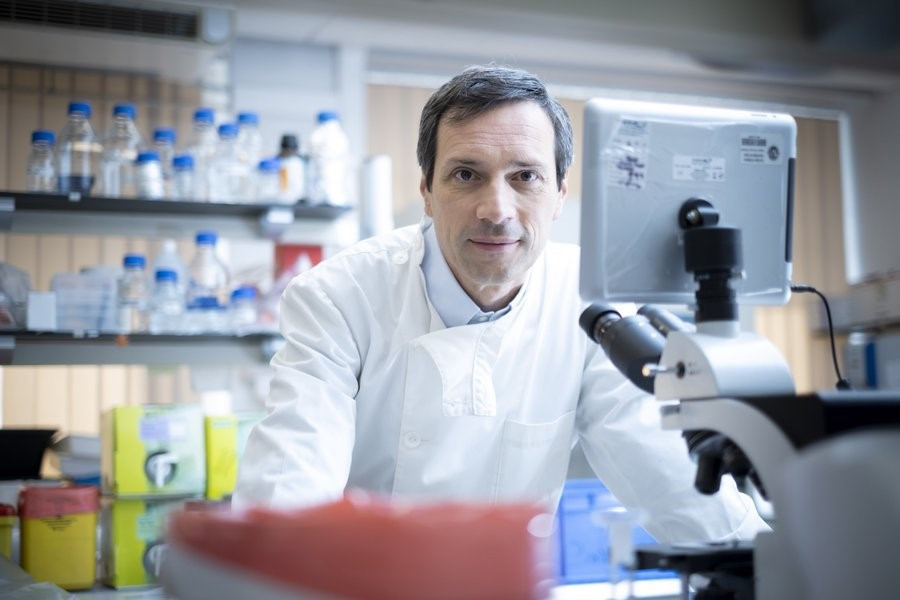
Portuguese and Spanish researchers are working together to develop antiviral drugs. The aim is to find ways to reach the brain and inactivate viruses such as HIV, Dengue, Zika or SARS-CoV-2, preventing adverse neurological damage and promoting mental health.
A group of scientists led by Prof. Miguel Castanho, Professor at FMUL and researcher at the Instituto de Medicina Molecular (iMM), in partnership with researchers from Pompeu Fabra University in Barcelona, is working on the development of innovative antiviral drugs capable of reaching the brain and inactivating viruses such as Dengue, Zika, HIV or SARS-CoV-2, preventing their possible neurological effects and helping to promote mental health. With funding from the European Commission, the consortium also hopes to include viruses that may emerge in the meantime and cause new pandemics.
"We're talking about various viruses, some of which are undervalued by the population, which is a mistake," stresses Miguel Castanho. "This is the case with AIDS, which remains a serious problem; measles, which has raised concerns worldwide since some groups began to opt out of vaccination; or SARS-CoV-2, which we know can also cause neurological damage."
Added to this list are those responsible for Zika, dengue and chikungunya, whose threat, due to climate change and the expansion of colonies of a specific type of mosquito, the so-called tiger mosquito, already detected in northern, southern and central Europe, including Portugal and Spain, is becoming increasingly real.
"We are working on the development of a drug that should have two important innovative characteristics: it should be broad-spectrum, because the same species of mosquito can carry several species of virus, such as dengue, Zika or chikungunva, and it should be able to protect the brains of fetuses in pregnant women, because one of these viruses, Zika, has the capacity to cause microcephaly in babies. It could become a preventative medicine, which protects against the development of infections, or a curative medicine, i.e. one that inactivates viruses that have already started an infection process in the body," explains the IMM researcher.
David Andreu, a researcher at Pompeu Fabra University, stresses the importance of this partnership and the World Health Organization's warning about the so-called Long Covid. "It is true that the end of the Covid-19 pandemic has already been decreed, but there is a wake-up call, which has been translated into an emergency approach plan for the disease, due to the millions of cases of Long Covid that will continue to require medical attention."
This continues to be a concern, with the WHO estimating a huge burden on health services, which need to respond to patients who continue to live with the impact of Covid, seeking treatments that restore their quality of life, not only physically, but also psychologically, which also justifies the commitment of this group of researchers.


